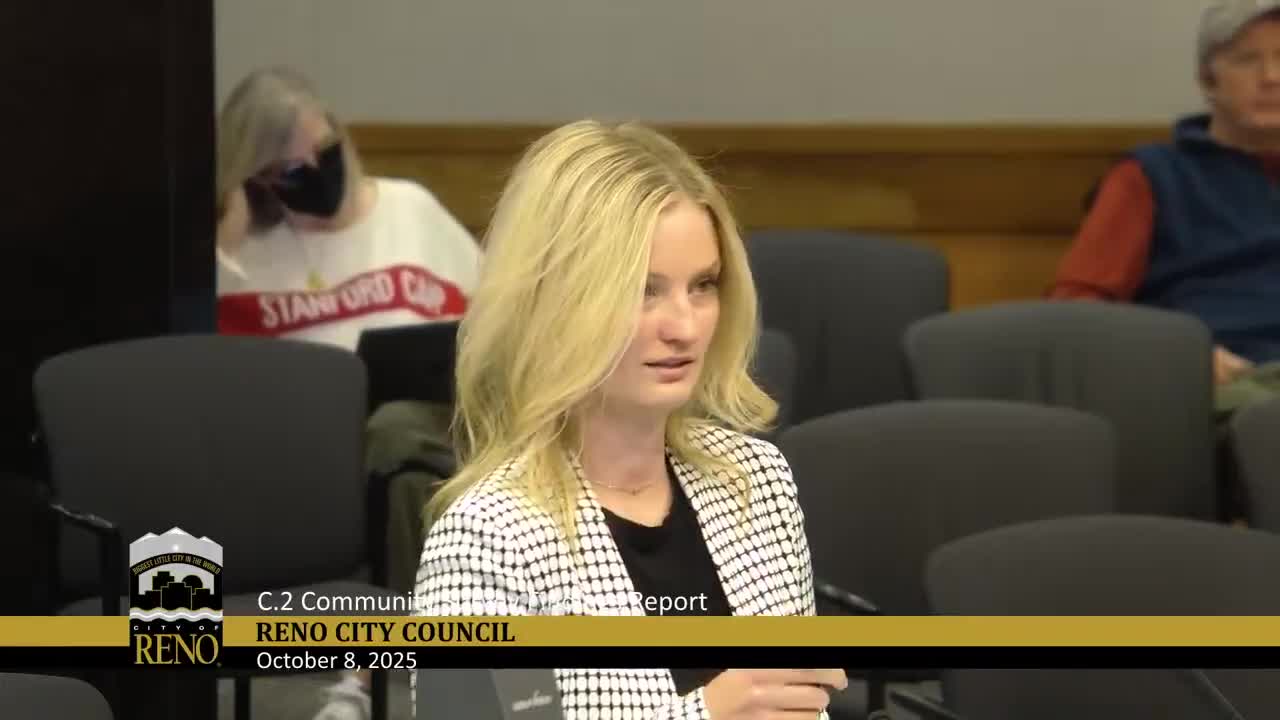City releases baseline community-survey findings showing high regard for emergency response and gaps in mobility and outreach
Get AI-powered insights, summaries, and transcripts
Subscribe
Summary
The city presented a 3,247‑response baseline community survey that found residents ranked emergency response and public-safety services highest, while mobility options and downtown vibrancy rated lower. Staff said the survey will inform strategic planning and be repeated in 2027.
Reno staff presented results from a community survey on Oct. 8 that collected 3,247 completed responses and set a baseline for the city's strategic planning update scheduled later in October.
The survey, available in four languages and conducted March–April 2025, found respondents most highly valued emergency response, police presence and infrastructure maintenance. Respondents rated mobility, public transit and downtown conditions less favorably. Staff said they will use the findings to inform the Oct. 29 strategic workshop and repeat the survey in 2027 to measure progress.
Carissa Bradley Cusack, strategic initiatives manager, described outreach that produced 3,247 completed surveys — far above the original goal of 1,500 — through 40 community events, a digital toolkit, and a pilot Community Partners Network of 22 organizations. She noted strengths of the data and limitations, including demographic skews (respondents skew older, more likely to be homeowners and more highly educated than the citywide profile) and self‑selection bias.
Key findings presented: respondents most often named emergency response (56%), police/neighborhood safety (49%), and public infrastructure (44%) as top three government services. Quality ratings were positive for fire, 911 and city customer service; ratings were lower for mobility and downtown conditions. On civic participation, 96% of the respondent pool said they voted in the last election and about half had contacted a local official or attended a public meeting. Barriers to engagement included scheduling conflicts, lack of trust in government and difficulty finding information.
Staff said the city saw strong media reach (~150,000 people), nearly 33,000 email newsletter subscribers and a high response via email distribution. Next steps include sharing findings with community partners, hosting a public webinar and using results in an Oct. 29 strategic planning workshop; staff plans a follow-up survey in 2027 to track change.
Council members praised the outreach and asked staff to pursue additional targeted outreach into wards or demographic groups that were under‑represented in the sample, and to explore targeted surveys for renters, younger residents and non‑English speakers.
